Horse
Can Horses Eat Watermelon? #Seeds #Rind #Nutritions
If you are a horse owner, feeding it can be one of the toughest tasks in most of the cases. There are experts by the mile and it may be huge trouble finding who is right and who is not. From that perspective, we thought of checking out and answering few questions like “Can horses eat bananas?”, “Can horses eat apples?“, “Can horses eat watermelons?”, etc. In this post, we shall exclusively cover – Can horses eat watermelons?
Contents
- 1 Can Horses Eat Watermelon?
- 2 Can Horses Eat the Green Part of Watermelon?
- 3 Can Horses Eat Watermelon Seeds?
- 4 Is the Sugar in Watermelon Harmful for the Horse?
- 5 Can Horses Eat Watermelon Rind?
- 6 Can Senior Horses Eat Watermelon?
- 7 How Much Watermelon can Horses Eat?
- 8 What does Watermelon Provide to a Horse?
- 9 Can All Horses Eat Watermelons?
- 10 How to Feed Watermelon to Horses?
- 11 The Final Wrap Up
Can Horses eat watermelon? Horses do eat watermelon and by all chance, your horse will indeed love it. Watermelon has useful amino acids and vitamins. However, it is advisable to wash it thoroughly before feeding it to the horse, to remove the pesticides or other contaminants.
Can Horses Eat Watermelon?
Watermelon is quite tasty and in addition, it does provide you access to a healthy treat for the majority of your horses. Watermelon is made of 92 parts of water and it can be one of the excellent options for keeping your horse well hydrated. In essence, if your horse is likely to have less water in its diet, watermelon can be what would make it one of the right choices.
Watermelon is rich in vitamin A, vitamin C, and potassium. It is quite low in sodium. The fruit also has fiber which can be one of the essential parts of your diet. The fiber can be a great constituent for improving the digestive system of your horse. The watermelon should be one of the best options for providing a healthy diet for horses.
Can Horses Eat the Green Part of Watermelon?
Horses can definitely eat the green part of the watermelon. Of course, the most popular part of a watermelon is its pink part which is fleshy. In addition, the green part is also edible. The rind or the green part of the watermelon is also edible.

There are a few people who believe that the green part of the watermelon is poisonous. The watermelon rind or the green part is safe to eat and is rich in vitamins, amino acids, and a wide range of nutrients.
Now, let us see are watermelon seeds edible for a horse?
Can Horses Eat Watermelon Seeds?
Horses will find the watermelon seeds safer and a good to eat option as long as the seeds are fed in moderation. The seeds in a larger number can prove to be a risky affair. But you can feed the watermelon in a moderate quantity. This will ensure that the seeds that your horse may consume would be considerably lower in quantity.
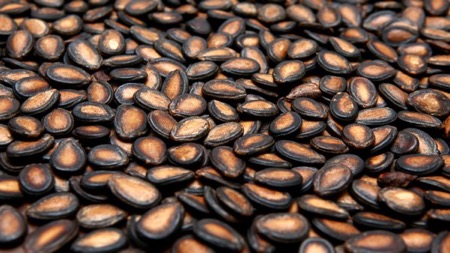
The watermelon seeds should not be fed all by themselves. The watermelon seeds that the horse eats should be part of the entire watermelon or a part of it. No, seeds all alone should be a stricter NO – NO! If you are looking to feed the watermelon without the seeds, it would be fine as well. Feeding the watermelons with seeds or without seeds can be a no issue.
The watermelon seeds just like the Apple seeds have cyanide, but they would be in a very lesser quantity. Eating the seeds occasionally may not be a severe issue. That is exactly why you should not feed too many seeds or the seeds alone to your horse.
Is the Sugar in Watermelon Harmful for the Horse?
Horse owners generally worry about the sugar content in the watermelon. But it should be noticed that the sugar content in the watermelon is not too much and you need not be worried about it in any way. Only 6 percent of the entire watermelon contains sugar and that should not be something you need to be worried about.
Approximately 92 percent of the watermelon consists of water. That would mean only 8 percent of the watermelon is pulp and seeds. Although watermelon tastes sweeter, it does not contain too much sugar. Is the sugar in watermelon harmful for the horse? Not exactly. The sugar found in the watermelon is a natural sugar that you would find in most of plant sources. In fact, everything that the horse eats contains sugar – take, for instance, grass, carrots, and practically everything the horse eats contains sugar, and the quantity is almost the same as found in the watermelon. In essence, eating watermelon will not cause much harm to the horse at all.
Can Horses Eat Watermelon Rind?
Horses can eat watermelon rind. In fact, the watermelon rind consists of a wider range of nutrients that include fiber, potassium, and amino acids. The rind can also provide you access to vitamins, A, B6, and C.
That would mean watermelon can provide you access to a portion of healthy food for both horses and humans. The rind is the green part of the watermelon and includes even the white part of the melon. The rind does protect juicy meat inside the fruit.
The watermelon rind is filled with a huge amount of goodness and nutrients. It does provide you potassium, citrulline as well as the same selection of vitamins and minerals as the flesh. However, before you can feed your horse with the watermelon rind, it would be important to wash it off thoroughly. It can have pesticides and may even contain some bacteria. This would make it quite essential to wash them properly before feeding them to your horse.
Can Senior Horses Eat Watermelon?
As long as your senior horse does not have any severe metabolic disorder, it should be able to consume watermelon without hassles. If you have a healthy senior horse that does also boasts of healthy teeth, it should be able to eat the watermelon in moderation.
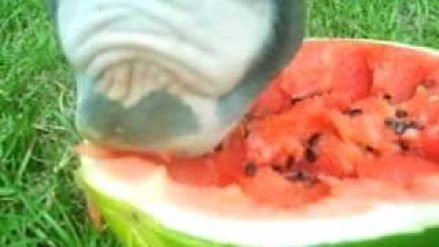
It would be advisable to keep an eye on the health conditions of the horse after it has eaten watermelon. It should be more so if the watermelon has been given as a treat for the first time to your senior horse. In case, there are no adverse health effects, you can continue feeding watermelon to your senior horse without any sort of hesitation.
How Much Watermelon can Horses Eat?
It is always practical to serve watermelon to your horse in moderation. In fact, it is advised that every sort of food served to your horse should be given in moderation. Watermelon is not different either. The heavy quantity can be quite detrimental to the diet of your horse and can cause colic or other digestive issues.
There are no special guidelines about the exact amount of watermelon that should be fed to your horse. However, it may be worthwhile to check if you can feed it to your horse as an occasional treat and not more than a couple of cups each time it is served.
Well, now let us see what is the nutritional value of watermelon for horses.
What does Watermelon Provide to a Horse?
Watermelon pulp and the rinds do provide great nutrition and water content to the horses. It is quite rich in several amino acids and vitamins providing it with a high degree of nutritional value.
Some of the best nutrients you would find in the watermelon would include –
- Watermelon offers your horse plenty of fiber – Ideally, 50 percent of the horse’s food should consist of fiber. They get fiber from hay and grass. The watermelon rind can be yet another great source of fiber. The fiber gets converted into energy through a fermentation process. Fiber plays a major role in the digestive system of the horse. Without fiber, the food may not move as expected in the digestive tract and can cause issues such as dehydration, colic, and laminitis.
- Horses get high potassium content from watermelon – The physiological wellbeing of the horse is assured with the right quantity of potassium in the horse’s diet. The potassium may be lost when urinating or sweating. Watermelon can help it get enough of potassium and keep the issues such as Muscle weakness, fatigue, decreased appetite, and exercise intolerance far away.
- Horses can get amino acids from the watermelon – The watermelon rind is a rich source of amino acid citrulline. This can be helpful in relaxing the blood vessels and increases the blood flow to the specific areas to the horses’ body.
Some other elements contained in the watermelon can include-
- Vitamin A – Vitamin A can be helpful in protecting the horse’s eyes and protects them from aging. It can also boost the immune system of your horse.
- Vitamin B6 – The vitamin can turn the carbohydrates into energy. This can be the best option for the racehorses.
- Vitamin C – Vitamin C is known for providing you access to the best immune system. It can also be useful in repairing the cells and keeping the tissue damage to the minimum level.
Those outlined above apart, watermelon also provides the nutrients such as iron. Magnesium, phosphorus, and a huge range of other vitamins and minerals.
Can All Horses Eat Watermelons?
Watermelon can be a very healthy treat for most of horses. In fact, all the types and varieties of horses can feed on watermelon.
Some of the major issues wherein you may not be able to feed watermelon to your horses can include –
How to Feed Watermelon to Horses?
There can be several ideas to feed watermelon to your horse. The choices you would opt for would ideally be dependent on what does your horse likes or what appeals to your style of feeding.
Whichever method you may use, take care to be moderate with the portions. It is always advisable to feed the watermelon to the horses in moderation to avoid unwanted health issues to your horse. If the horse has any inherent health issues, it is always advisable to avoid feeding watermelon completely.
The Final Wrap Up
Horses obviously love treats, and watermelon can definitely be one of them. It has been regarded as the safest fruit for most of horses. In addition to being tasty, the fruit has also been rated to be quite healthy.
In case your horse loves treats, serving the watermelon to your horse can indeed be the right choice. But, take care that you are feeding it in moderation, because moderation is the key for any kind of food to any kind of animal, and watermelon for a horse should not be an exception!

-
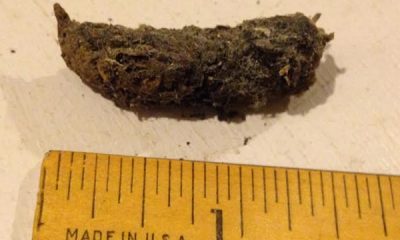
 Skunk4 years ago
Skunk4 years agoWhat Does Skunk Poop Look Like? Images & Identifications
-

 Bunny4 years ago
Bunny4 years agoPregnant Rabbit Labor Signs #Test#Symptoms#Age#Length
-

 Turtles4 years ago
Turtles4 years ago8 Basking Rocks/ Platforms for Turtles – A Perfect Guide
-
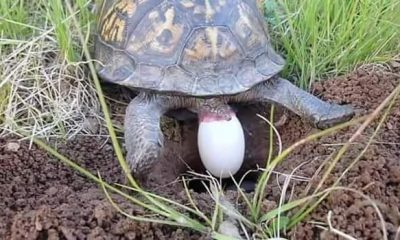
 Turtles5 years ago
Turtles5 years agoHow To Take Care of Turtle Egg At Home?
-

 Bunny5 years ago
Bunny5 years agoHow to Get Rid of Mites on Rabbits? #NaturalRemedies #Video
-

 Horse4 years ago
Horse4 years agoHow Much Weight Can a Horse Carry? #Clydesdale #Friesian #Mustang #Draft
-

 Turtles4 years ago
Turtles4 years agoHow to Take Care of Snapping Turtle Eggs? #Incubating #Hatching
-
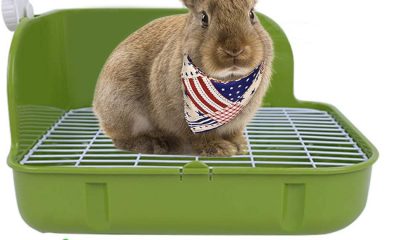
 Bunny5 years ago
Bunny5 years agoHow to Potty Train a Rabbit in House? Tips on Litter Training









